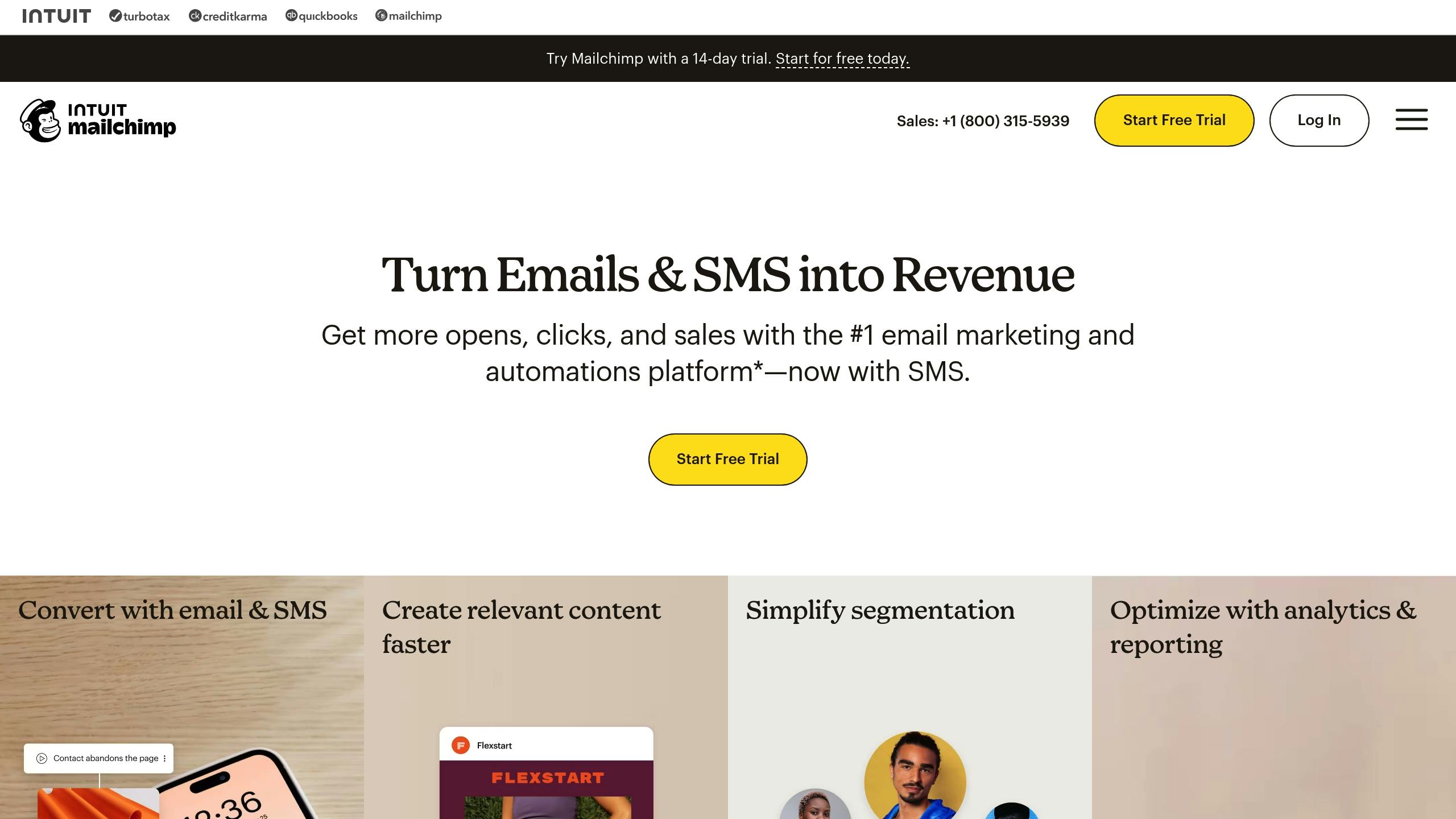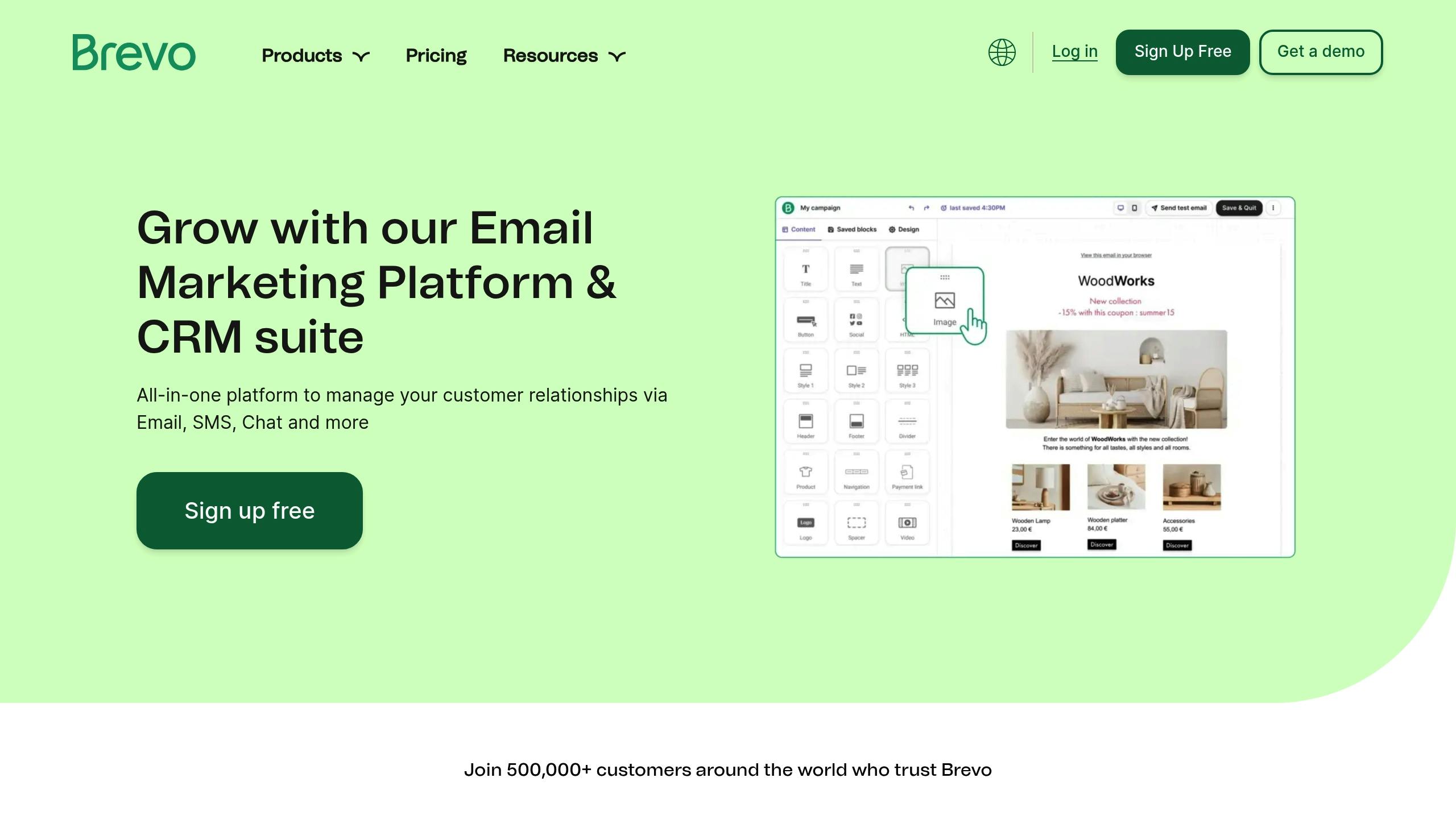
Author
Web3 Email Analytics Without Compromising Privacy
Explore how Web3 email platforms prioritize privacy and analytics, contrasting them with traditional services and offering tailored recommendations.
Web3 Email Analytics Without Compromising Privacy
Email marketing is evolving with privacy in focus. Traditional platforms like Mailchimp and Brevo rely on centralized servers, which can risk data breaches. Web3 solutions, such as EtherMail, use blockchain for decentralized storage and end-to-end encryption, giving users full control over their data. Here's a quick comparison:
- EtherMail: Privacy-first, blockchain-based email with token-gated content and user-controlled analytics.
- Mailchimp: Centralized platform with advanced analytics, GDPR compliance, and strong campaign tools.
- Brevo: Budget-friendly with GDPR compliance, CRM tools, and analytics like click heatmaps.
Quick Comparison
| Feature | EtherMail | Mailchimp | Brevo |
|---|---|---|---|
| Privacy | End-to-end encryption, decentralized | GDPR compliance, centralized | GDPR compliance, EU-based servers |
| Analytics | Wallet insights, token-based metrics | AI-powered insights, A/B testing | Click heatmaps, website tracking |
| Cost | User rewards system | Starts at $13/month | Starts at $9/month |
| Best For | Web3 projects, DAOs | Small businesses, enterprises | Cost-effective bulk campaigns |
Choose EtherMail for privacy-first Web3 email, Mailchimp for detailed analytics, or Brevo for affordable, GDPR-compliant campaigns.
Related video from YouTube
1. EtherMail

EtherMail combines privacy-focused features with advanced marketing tools, making it a key player in the Web3 email analytics space. The platform supports over 2 million verified accounts and works with more than 100 Web3 communities as their main communication channel[1].
Here’s a closer look at its standout features:
| Feature | Privacy Advantage | Analytics Capability |
|---|---|---|
| Privacy Wall | Users control content preferences | Detailed engagement metrics |
| Anti-Phishing Code | Verifies email authenticity | Tracks verified deliveries |
| Wallet-to-Wallet Communication | End-to-end encryption | Insights on token holders |
| EMC Rewards System | Marketing based on user consent | Tracks engagement effectively |
These tools are at the core of EtherMail’s focus on privacy and analytics, providing a secure and engaging user experience. Considering that U.S. workers receive an average of 120 emails daily, with 20% being spam, EtherMail’s user-controlled preferences and verification systems help ensure only meaningful interactions are tracked.
The EMC (EtherMail Coins) reward system adds another layer by compensating users for interacting with marketing content. This ensures that marketing efforts are based on consent, a critical need as the number of daily emails is expected to hit 376 billion by 2025.
EtherMail’s Web3-native features, such as token-based segmentation and NFT-gated content, highlight how privacy and analytics can work hand in hand. These innovations make EtherMail stand out, especially as we examine how it compares to more traditional platforms in the next sections.
2. Mailchimp

Mailchimp is a well-known name in email marketing, with a global user base of over 11 million and 500 million emails sent daily. It stands out for its focus on privacy while offering powerful analytics tools.
| Feature | Privacy Measures | Analytics Capabilities |
|---|---|---|
| Data Processing | EU-US Data Privacy Framework certified | Campaign performance tracking |
| Security Protocol | ISO 27001 certification & SOC 2 compliance | A/B testing analytics |
| User Control | Double opt-in functionality | Audience segmentation |
| Monitoring | Human review of suspicious activity | Deliverability tracking (>99%) |
| Authentication | Two-factor authentication | Real-time engagement metrics |
These features highlight Mailchimp's focus on secure and efficient email marketing. By acting as a data processor, Mailchimp gives businesses better control over their data. This balance is appreciated by users like Lauren Korus, Content Manager at Vacation Races, who shared:
"Mailchimp's reporting tools and campaign dashboard were a big part of what motivated me to change our email strategy... Mailchimp made it easier to see our performance and make changes to strategy".
Mailchimp also offers practical tools like immediate breach alerts, built-in consent management, and robust anti-abuse monitoring. These features ensure that privacy and security remain a priority.
On the analytics side, Mailchimp delivers detailed tracking while respecting user privacy. Its tools have helped users achieve impressive returns, with some reporting up to 25x ROI. The Standard plan, starting at $20/month, includes access to these analytics features.
One standout example is Spotify's use of Mailchimp's Email Verification API, which reduced bounce rates from 12.3% to 2.1%, resulting in $2.3 million in additional revenue.
However, Mailchimp does rely on cookie-based tracking, which sets it apart from blockchain-based Web3 platforms. Despite this, Mailchimp emphasizes transparency, as reflected in their statement:
"We've always valued data privacy and GDPR is the gold standard... We believe in protecting your customer's data and giving you control over your information. The data that you entrust with us belongs to you and your customers, and we take this seriously."
sbb-itb-4ae6288
3. Brevo

Brevo handles an impressive 30 million emails daily across 14 countries, offering a combination of privacy-focused features and detailed analytics.
| Privacy Features | Analytics Capabilities | User Control |
|---|---|---|
| GDPR compliance | Click heatmaps | Advanced segmentation |
| EU-based server storage | Send time optimization | Consent management |
| Adaptation to Apple MPP | Website tracking | Data request handling |
| Encryption protocols | A/B testing tools |
Brevo strikes a balance between safeguarding user privacy and delivering actionable analytics. For instance, it has adapted to Apple’s Mail Privacy Protection (MPP), which prevents senders from tracking email opens or linking IP addresses to user activity:
"In the Mail app, Mail Privacy Protection stops senders from using invisible pixels to collect information about the user. The new feature helps users prevent senders from knowing when they open an email, and masks their IP address so it can't be linked to other online activity or used to determine their location."
- Apple
With these measures, Brevo ensures high performance, including a 99% delivery rate. Its pricing starts at $9 per month for 5,000 emails, making it a cost-effective option for businesses of all sizes.
Kevin Yen, Head of Growth at AI Camp, highlights Brevo's value:
"Brevo gives us the functionality and flexibility we need to manage our marketing engagement as well as our sales pipeline while saving us $30,000 annually compared to HubSpot."
For privacy concerns, Brevo offers a dedicated Data Protection Officer (dpo@brevo.com) and adheres to regulations such as GDPR, CASL, and CCPA.
Stephen Day, another user, shares his experience with the platform’s analytics tools:
"We stumbled upon Brevo by accident as we were using a system just for sending marketing emails... Brevo has allowed us to move away from three other, separate systems and we now use Brevo for all our outbound sales and marketing endeavors. This has saved us a lot of time and money and has increased our output."
Platform Strengths and Limitations
When comparing email marketing platforms with a focus on privacy and analytics, each option brings its own set of trade-offs. Here's a closer look at how EtherMail, Mailchimp, and Brevo stack up:
| Feature Category | EtherMail | Mailchimp | Brevo |
|---|---|---|---|
| Privacy Protection | End-to-end encryption; decentralized storage; user-controlled data | Standard encryption; centralized servers; GDPR compliance tools | EU-based servers; GDPR/CCPA compliance |
| Analytics Depth | Privacy-focused tracking; Web3 wallet insights; token-based metrics | Comprehensive tracking; AI-powered insights; behavioral analysis | Click heatmaps; website tracking; A/B testing |
| Web3 Integration | Native blockchain support; token-gated content; smart contract compatibility | Limited Web3 features; API integrations needed; traditional tracking | Basic Web3 support; standard integrations; traditional metrics |
Traditional email platforms like Mailchimp and Brevo often rely on centralized data storage and third-party trackers. This approach can compromise user privacy, even with compliance tools in place. On the other hand, Web3-native platforms such as EtherMail prioritize user autonomy by leveraging blockchain technology. As Vitalik Buterin aptly puts it:
"Only a global anonymous set is truly reliable and secure".
Web3 email platforms offer encrypted engagement tracking and privacy-preserving analytics, reducing the risks associated with centralized storage. However, this comes with its own set of challenges when balancing privacy with detailed insights.
Key Differences to Consider
- Decentralized Control: Web3 platforms like EtherMail provide built-in decentralized data management and seamless integration with dApps, while traditional platforms often require APIs for advanced functions.
- Privacy vs. Analytics: Traditional platforms excel in analytics but often compromise user data control. Web3 solutions prioritize privacy-focused metrics without sacrificing functionality.
- Data Handling: Centralized services increase the risk of breaches, whereas Web3 platforms use anonymized and aggregated data to protect user privacy.
The shift toward privacy-first email analytics reflects a broader industry trend. As businesses demand both robust insights and stronger privacy measures, Web3 platforms are paving the way for a new standard in email marketing.
The next section will summarize the findings and provide actionable recommendations.
Summary and Recommendations
Based on our analysis of the balance between privacy and analytics, here are tailored recommendations to help you choose the right email platform:
For Privacy-Focused Organizations
Platforms like EtherMail put user data ownership front and center. They offer advanced privacy settings and token-gated content, making them ideal for sensitive communications.
For Analytics-Driven Marketers
Traditional platforms excel in delivering detailed analytics and automation. For instance, Mailchimp offers plans starting at $13 per month, featuring an intuitive interface and straightforward automation. On the other hand, Brevo provides robust CRM tools, offering deeper insights into customer behavior and campaign performance.
| Use Case | Recommended Platform | Key Benefit |
|---|---|---|
| Web3 Projects & DAOs | EtherMail | Blockchain integration and token-gated content |
| Enterprise Marketing | Brevo | Advanced CRM and automation |
| Small Business | Mailchimp | Easy-to-use interface and basic automation |
Strategic Considerations
When selecting a platform, keep these factors in mind:
- Budget Optimization: If you’re running bulk campaigns, Brevo is more cost-effective. For example, sending 100,000 emails costs just $69 with Brevo, compared to $800 with Mailchimp.
- Compliance Needs: If your organization must meet standards like HIPAA, GDPR, or CAN-SPAM, prioritize platforms with strong compliance features. Brevo offers a robust toolkit, while EtherMail has built-in privacy controls tailored for sensitive data.
- Integration Requirements: Assess how well the platform fits into your existing tech stack. While Web3 platforms like EtherMail excel in data privacy, they may require extra setup to work seamlessly with other marketing tools.
These factors will help you make an informed decision when choosing the best email platform for your needs.




